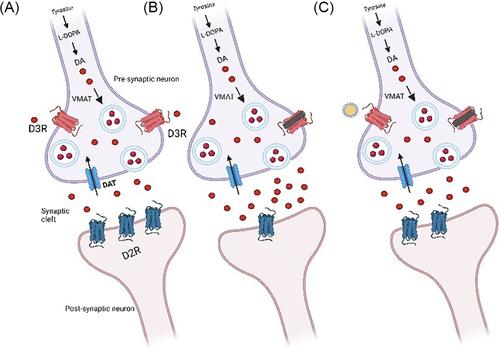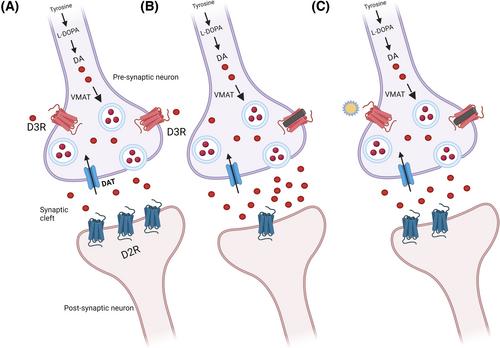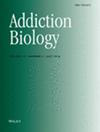多巴胺 3 受体作为阿片类药物使用障碍的候选生物标记物和疗法
IF 3.1
3区 医学
Q3 BIOCHEMISTRY & MOLECULAR BIOLOGY
引用次数: 0
摘要
在此,我们介绍了最近的一些研究,这些研究表明特定的 DRD3 单核苷酸多态性(SNPs,如 rs324029 和 rs2654754)可作为阿片类药物使用障碍(OUD)的预后生物标志物。此外,新型多巴胺 3 受体(D3R)部分激动剂和拮抗剂作为候选 OUD 治疗药物进行了临床前研究评估,结果表明与最初的 D3R 拮抗剂相比,心血管毒性风险降低。根据这些研究结果,我们认为 DRD3 SNPs 可作为评估 OUD 风险的诊断工具,并且有必要开展更多研究,将 D3R 作为治疗 OUD 的安全有效的治疗靶点。本文章由计算机程序翻译,如有差异,请以英文原文为准。


The dopamine 3 receptor as a candidate biomarker and therapeutic for opioid use disorder
Here, we present recent studies suggesting that specific DRD3 single nucleotide polymorphisms (SNPs, e.g. rs324029 and rs2654754) might serve as prognostic biomarkers for opioid use disorder (OUD). Additionally, preclinical studies with novel dopamine 3 receptor (D3R) partial agonists and antagonists have been evaluated as candidate OUD therapeutics and have shown a reduced risk of cardiovascular toxicity compared with the original D3R antagonist. From these findings, we argue that DRD3 SNPs could serve as a diagnostic tool for assessing OUD risk and that more research is warranted examining the D3R as a safe and effective therapeutic target for treating OUD.
求助全文
通过发布文献求助,成功后即可免费获取论文全文。
去求助
来源期刊

Addiction Biology
生物-生化与分子生物学
CiteScore
8.10
自引率
2.90%
发文量
118
审稿时长
6-12 weeks
期刊介绍:
Addiction Biology is focused on neuroscience contributions and it aims to advance our understanding of the action of drugs of abuse and addictive processes. Papers are accepted in both animal experimentation or clinical research. The content is geared towards behavioral, molecular, genetic, biochemical, neuro-biological and pharmacology aspects of these fields.
Addiction Biology includes peer-reviewed original research reports and reviews.
Addiction Biology is published on behalf of the Society for the Study of Addiction to Alcohol and other Drugs (SSA). Members of the Society for the Study of Addiction receive the Journal as part of their annual membership subscription.
 求助内容:
求助内容: 应助结果提醒方式:
应助结果提醒方式:


